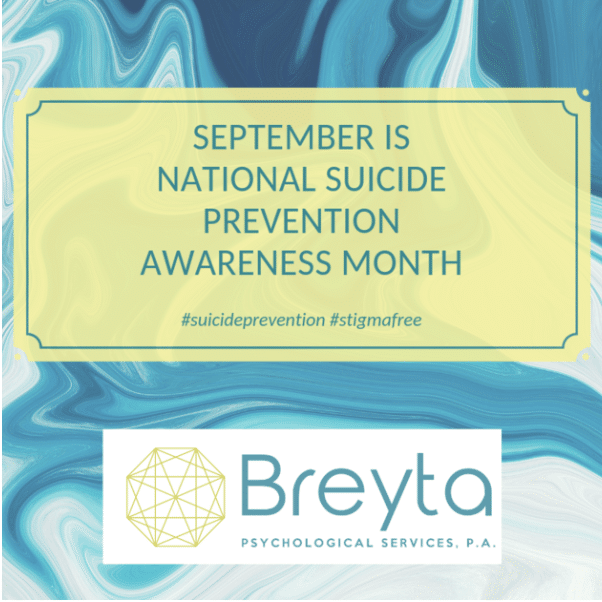September is National Suicide Awareness & Prevention Month!

You Are Not Alone
Suicide can be a difficult topic to discuss, but when not addressed it can lead to more suffering as people continue to hurt in silence. Whether you’ve experienced suicidal thoughts, are a suicide survivor, or know someone who died by suicide, remember that you are not alone.
Break The Stigma and Build Hope
Suicide affects people of all walks of life, ages, ethnicity, and races. It is the 2nd leading cause of death among people ages 10-34* and the 10th leading cause of death overall in the U.S.** Because of its prevalence and impact, we must continue to break the stigma and connect with each other around this important topic. There are resources, treatments, and hope!
Develop Awareness
While there is no single cause of suicide, there are a number of factors that may occur and contribute to someone thinking or even acting on the thoughts of suicide. Life stressors or painful life events can overwhelm to the point that a person feels a deep sense of despair or hopelessness.
Know Risk Factors
Sudden changes in behaviors or mood, especially in the context of a significant loss or stress can signal that someone is at risk for suicide. Some important warning signs are feeling down, anxious, agitated, impulsive, hopeless, or ashamed.
Additionally, if someone talks about feeling like a burden to others, seeing no reason to live, and/or saying goodbye, this may mean they are experiencing an incredible amount of pain. Behaviors that suggest someone is at risk for suicide are increased use of substances, withdrawing from friends and family, writing suicide notes, researching methods to die, or giving away possessions.***
Treatment Can Help
When previous coping strategies are ineffective and a person struggles with mental health concerns, then the risk of suicide increases. But there is hope and treatment can help! Managing mental health conditions, such as depression, anxiety, and PTSD can significantly improve quality of life and ability to cope with difficulties.





